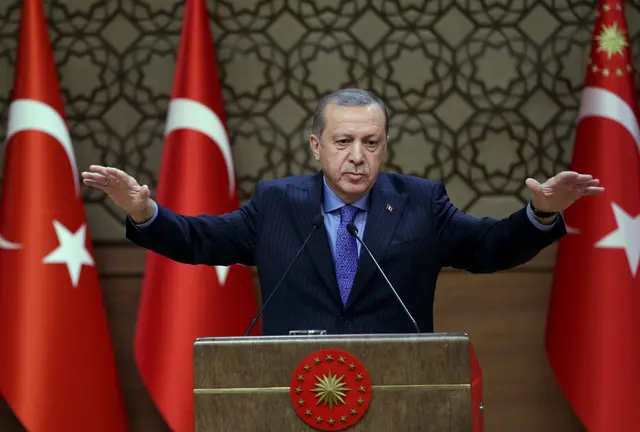Turkey has reportedly been working on the diplomatic channels to defuse tension between the United States and Iran after the assassination of the latter’s top military official in Iraq by calling the concerned stakeholders to express restraint, local media reported Monday morning by quoting anonyms sources.
Earlier at the weekend, Turkish President Recep Tayyip Erdogan held telephonic conversations with Iranian President Hasan Rouhani, Iraqi President Barham Salih and French President Emmanuel Macron after Tehran vowed to retaliate against the United States as a revenge of its slain military chief Qassem Soleimani and Iraqi militia leader Abu Mahdi al-Muhandis.
During the talks, the leaders discussed the latest developments in the region as well as bilateral relations, local reports said without naming the source. Erdoğan and Salih emphasized that regional and international cooperation is needed to resolve crises in the region.
Iranian and Iraqi presidents agreed with Erdogan that the fight against terrorism and radical ideology would help stabilize the region through cooperation.
With concerns that the current situation would trigger new tensions and conflicts in the region, Turkey asked all the related parties to avoid military actions that could further, destabilize the region.
Erdogan’s chief foreign policy advisor and the presidential spokesman, İbrahim Kalın said during a TV channel interview, “Turkey once again calls on all parties to act with common sense and avoid steps that will further escalate tension.”
Earlier on Friday, Turkey issued a statement through the Foreign Ministry expressing its deep concerns about the escalating tension in the Middle East after the U.S. recent attacks in Iraq.
“We strongly reiterate that turning Iraq into a conflict zone will harm peace and stability not only in Iraq but also the entire region,” read the statement, adding, “Turkey has always been against foreign interventions, assassinations and sectarian conflicts in the region. We invite all parties concerned to act with restraint and discretion, to avoid unilateral steps that can endanger peace and stability in our region, and prioritize diplomacy.”
(ASIA PACIFIC DAILY)
 简体中文
简体中文

